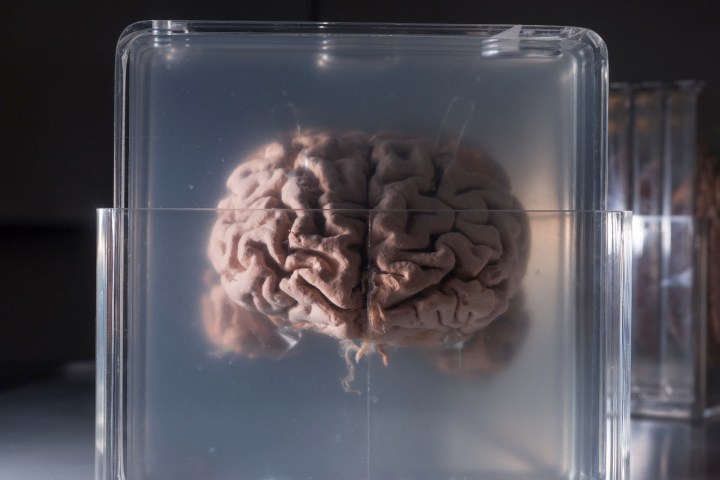The idea of being able to upload our consciousness to a computer is a tech dream that everyone from science-fiction writers to futurist Ray Kurzweil has discussed. But a new startup being shepherded by startup accelerator Y Combinator wants to make it a reality — although there is a catch. You have to die in order for it to be able to work its magic. And there’s no guarantee that the consciousness uploading part will actually pan out, either.
Called Nectome, the startup’s premise is to preserve brains in microscopic detail using what MIT Review describes as a “high-tech embalming process.” This involves a process called vitrifixation, also known as aldehyde-stabilized cryopreservation. The team behind the project, led by co-founders Michael McCanna and Robert McIntyre, have previously won the Brain Preservation Prize (yes, that’s a real thing!) for preserving a complete rabbit connectome, a complete map of all the neural connections in the brain. They have also scaled this preservation process to larger brains, including one carried out on the corpse of an elderly woman in February. This was the first demonstration of vitrifixation on a human brain.
So what’s the sales pitch? Basically that you can pay Nectome to carry out its brain embalming process after your death. Right now, the company is gauging interest by taking $10,000 deposits from customers, although these are fully refundable if you happen to have a change of mind — so to speak.
Beyond this, the company isn’t promising anything in terms of guaranteed immortality, but its website certainly suggests that mind uploading is the end goal — although it’s not clear whether this would be carried out by Nectome or a third party.
“Our mission is to preserve your brain well enough to keep all its memories intact: from that great chapter of your favorite book to the feeling of cold winter air, baking an apple pie, or having dinner with your friends and family,” the company writes. “We believe that within the current century it will be feasible to digitize this information and use it to re-create your consciousness.”
So far, Nectome has received $1 million in funding, including $120,000 from Y Combinator and an additional $960,000 federal grant from the U.S. National Institute of Mental Health for “whole-brain nanoscale preservation and imaging.” Will enough people add their $10,000 deposits to make this a scalable business? We guess we will have to wait and see.



